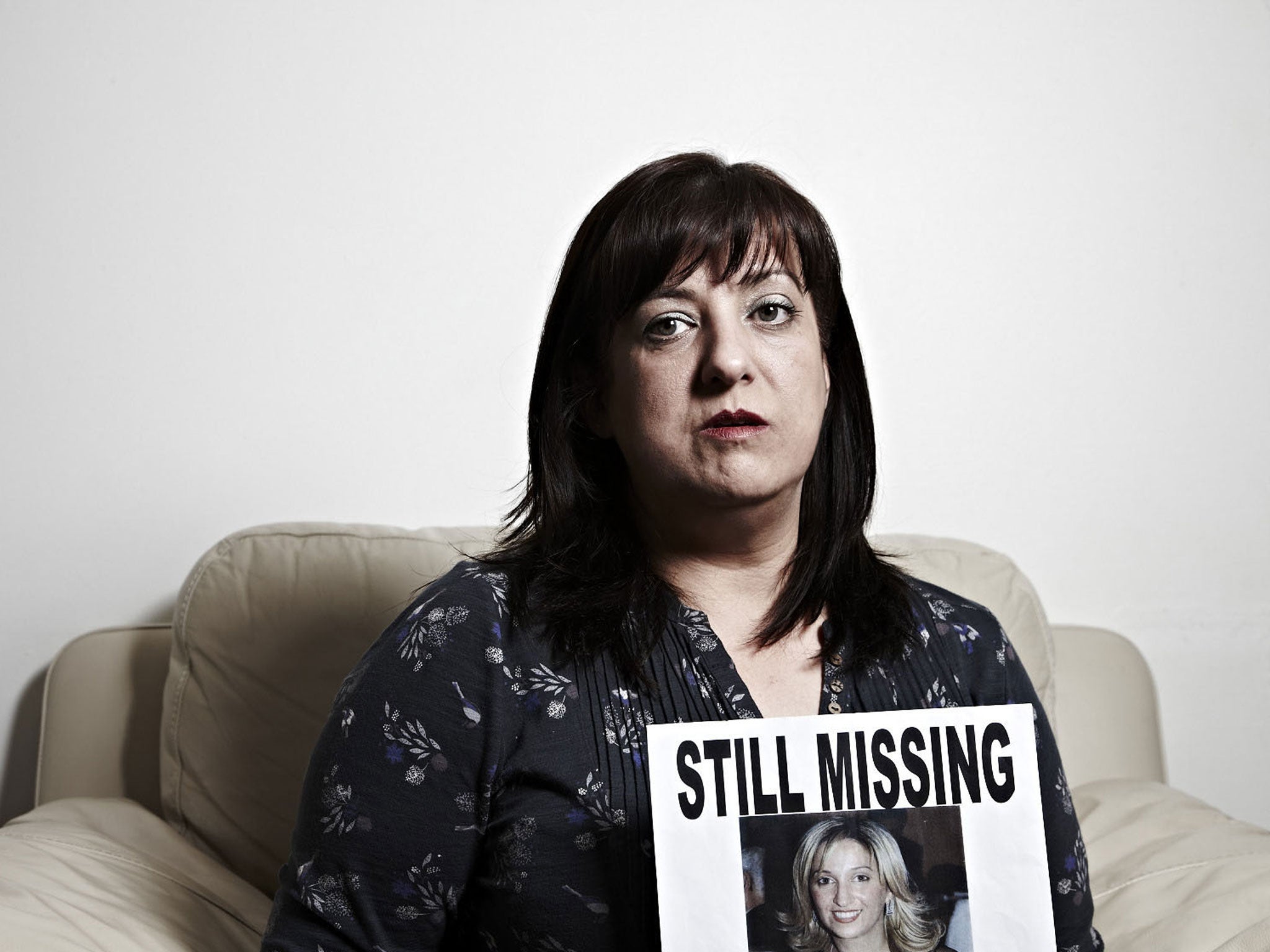The Missing, Channel 4 - TV review: Melancholy portrait turns up painful home truths

Every year in Britain, 2,000 people go missing and do not return. Last night's melancholy Channel 4 documentary The Missing examined the circumstance of three such cases, through the confusion and desperation of the people they left behind.
In Without a Trace, the American TV drama about the FBI's Missing Persons Unit, which also used to air on Channel 4, families always eventually found some sort of resolution – even the awful resolution of a dead body. For the real-life family members featured in this one-off documentary, there was no such comfort. Instead, their stories posed a terrible question that no one wants to confront: how well can you ever really know another person? Even the people we think we know best of all?
Terrie Beardsley felt her relationship with her husband was solid – they grew up together, they called each other "Bunny" – until one morning, two years ago, when he drove off without saying goodbye. She hasn't heard from him since. Her sister seemed to think he'd left his family to start a new life, but in such an impossible position, with no conclusive evidence either way, Terrie felt she has no option but to continue the search. "What sort of wife would I be if I gave up on him?"
In north London, Berna was also fighting to keep alive the hope that her sister Esra's fate might one day be discovered. She went missing from her home in Ireland nearly three years ago and the investigating officer gently suggested that suicide was most likely. This was a conclusion Berna was unwilling to accept: "What damn proof have you got that my sister's dead?" Unfortunately, this lack of proof is unnervingly common. In more than 70 per cent of suicide cases, said the officer, there is no note left behind.
This documentary gave us just a taste of the terrible turmoil of emotions these open-ended mysteries create. Steve a married man of 51, had been frantically looking for his younger brother Mark for months, before he eventually turned up. We expected a tearful reunion and a big brotherly hug – but real familial relationships are more complicated than they are on Without a Trace. Instead, there was just a reserved phone call and a bleak final coda.
Join our commenting forum
Join thought-provoking conversations, follow other Independent readers and see their replies
Comments
Bookmark popover
Removed from bookmarks